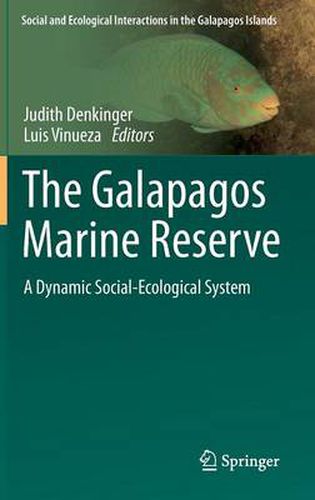Readings Newsletter
Become a Readings Member to make your shopping experience even easier.
Sign in or sign up for free!
You’re not far away from qualifying for FREE standard shipping within Australia
You’ve qualified for FREE standard shipping within Australia
The cart is loading…






This title is printed to order. This book may have been self-published. If so, we cannot guarantee the quality of the content. In the main most books will have gone through the editing process however some may not. We therefore suggest that you be aware of this before ordering this book. If in doubt check either the author or publisher’s details as we are unable to accept any returns unless they are faulty. Please contact us if you have any questions.
This book focuses on how marine systems respond to natural and anthropogenic perturbations (ENSO, overfishing, pollution, tourism, invasive species, climate-change). Authors explain in their chapters how this information can guide management and conservation actions to help orient and better manage, restore and sustain the ecosystems services and goods that are derived from the ocean, while considering the complex issues that affect the delicate nature of the Islands. This book will contribute to a new understanding of the Galapagos Islands and marine ecosystems.
$9.00 standard shipping within Australia
FREE standard shipping within Australia for orders over $100.00
Express & International shipping calculated at checkout
This title is printed to order. This book may have been self-published. If so, we cannot guarantee the quality of the content. In the main most books will have gone through the editing process however some may not. We therefore suggest that you be aware of this before ordering this book. If in doubt check either the author or publisher’s details as we are unable to accept any returns unless they are faulty. Please contact us if you have any questions.
This book focuses on how marine systems respond to natural and anthropogenic perturbations (ENSO, overfishing, pollution, tourism, invasive species, climate-change). Authors explain in their chapters how this information can guide management and conservation actions to help orient and better manage, restore and sustain the ecosystems services and goods that are derived from the ocean, while considering the complex issues that affect the delicate nature of the Islands. This book will contribute to a new understanding of the Galapagos Islands and marine ecosystems.